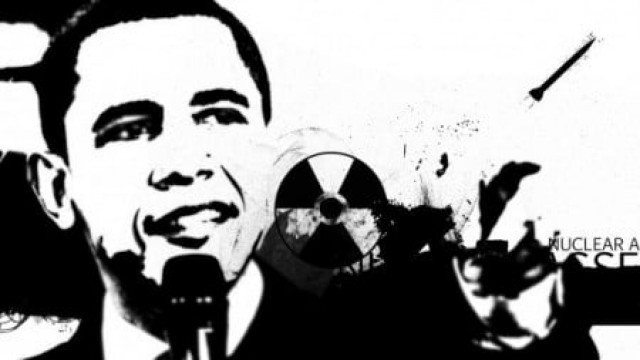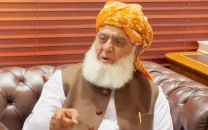Obama's atomic awakening

In the Nuclear Posture Review (NPR), issued on April 6, US President Barack Obama pledged that he would cut his country’s existing nuclear arsenal and would not unilaterally use nuclear weapons. Taken in conjunction with an interview Obama gave to The New York Times on April 5, where he declared that he was confident Pakistan’s atomic weapons were secure, the NPR shows a new maturity in US thinking on proliferation issues.
The US has finally come to the realisation that the greatest threat comes not from states who would face near-certain annihilation were they to launch a nuclear attack, but from the proliferation of nuclear technology to rogue, non-state actors. Russia and China, the NPR declares, no longer pose a threat to the US. And Obama will put these words into action by reducing its nuclear arsenal by 30 per cent after singing the New START Treaty with Russian President Dmitry Medvedev on April 8.
The world should quietly applaud the Americans’ changed thinking on this issue but Pakistan still needs to be guarded in its response. Obama has stated that he thinks it unlikely that terrorists will get their hands on a nuclear weapon but is worried that they may be given materials like plutonium and enriched uranium. Given the suspicion with which Pakistan’s nuclear programme is viewed in Washington, one statement of support by Obama is not enough to erase suspicion that our nuclear programme is being closely scrutinised and plans may be afoot to take it out if the Americans start getting jittery. After all, the NPR does plainly state that the number one threat to the US is “nuclear terrorism”, a phrase Obama officials and the international media have always linked with Pakistan.
The second biggest threat identified by the NPR is nuclear proliferation, which implies, without clearly saying so, the nuclear programmes of North Korea and Iran. The former has admitted to weaponising uranium while the latter claims it is seeking nuclear energy only for peaceful purposes. The NPR, if it is followed to the letter, will protect both countries from a US nuclear attack but no mention is made of whether conventional military means can be employed to prevent nuclear proliferation to countries that are viewed with suspicion by the US. At the same time, Obama should be praised for so thoroughly breaking away from the sabre-rattling of George W Bush’s NPR of 2001.
Where Bush had threatened nuclear retaliation even if the US or its allies were attacked by chemical or biological weapons, Obama says that his country’s nuclear arsenal serves primarily as a deterrent and will only be used against those countries which use nuclear weapons against the US.
It is also significant that the NPR clearly states that no new nuclear weapons will be built, again a shift from his predecessor, who had made the development of a new nuclear warhead a part of his defence strategy. It is important to see the NPR not in isolation but as a continuation of Obama’s foreign policy initiatives. He is walking a tightrope in trying to repair his country’s image while appeasing nationalistic Americans who fear his quest for international approval is coming in the way of US self-interest.
Obama did the same when he defended the unilateral declaration of war while accepting the Nobel Peace Prize, and when he balanced his drawdown from Iraq with a surge in Afghanistan. In trying to be everything to everyone, Obama has perfected the art of compromise, which delights no one but rarely angers everyone either. When President Obama declared in Prague last year that he would work towards a world without nuclear weapons, he sounded like an incurable optimist intoxicated by the sound of his soaring rhetoric. The dream of a nuclear-free world is barely advanced by one document but Obama’s NPR shows that he is willing to make the effort to live up to his promises.


















COMMENTS
Comments are moderated and generally will be posted if they are on-topic and not abusive.
For more information, please see our Comments FAQ